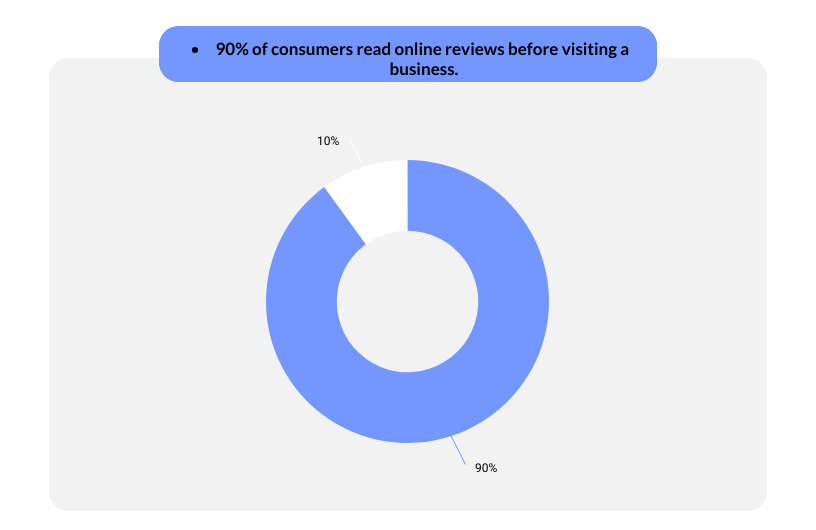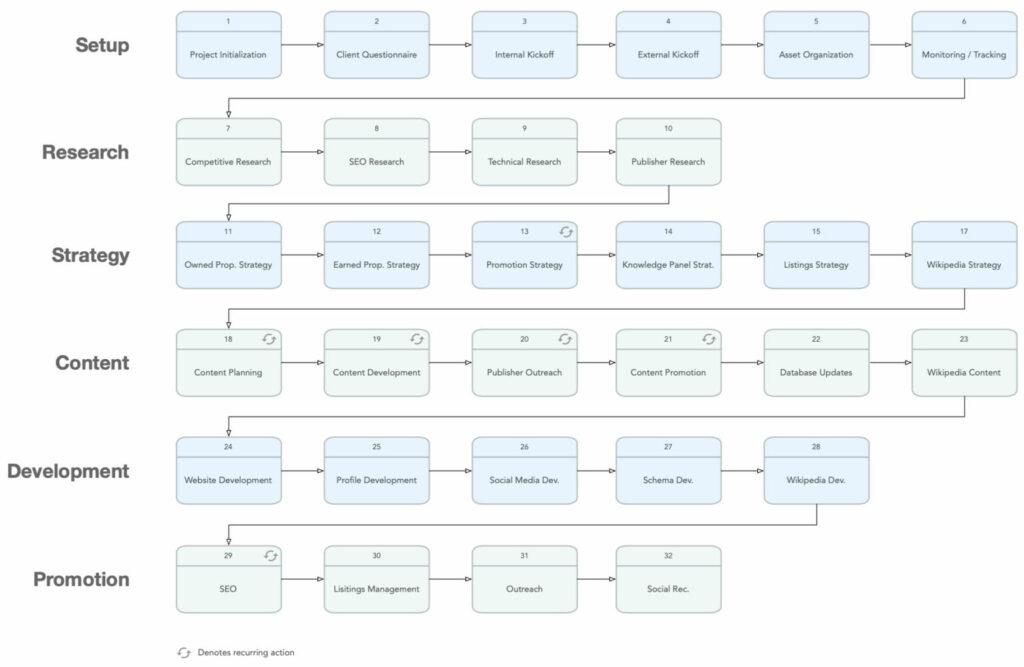Mastering Online Reputation Management: Tips and Strategies
A strong online reputation can inspire customer loyalty and trust, while a negative reputation can harm sales and customer retention. This is where the process of online reputation management (ORM) comes into play.
ORM is a comprehensive strategy that involves monitoring and shaping public perceptions of a brand or business. It comprises five key stages: research, strategy, content development, promotion, and continuous improvement.
This article will dive into the essentials of online reputation management, starting with the basics before exploring advanced strategies for improving your online presence. Tailoring approaches for both individuals and businesses, we will discuss how to develop and promote engaging content, utilize the best ORM practices, and measure the success of ORM efforts.
Table of Contents:
- Understanding the Basics of Online Reputation Management
- Four Tips for Improving Your Online Reputation
- Repairing Your Online Reputation
- Technical Tools and Platforms for ORM
- FAQs
Understanding the Basics of Online Reputation Management
Defining Online Reputation Management (ORM)
Online Reputation Management (ORM) involves monitoring, influencing, and controlling an organization’s or individual’s reputation online. It plays a critical role in managing the perceptions of a company across various digital platforms, such as social media, search engines, and review sites. ORM is not just about handling negative feedback but also about promoting positive content that aligns with business values and brand image.
The Importance of ORM for Businesses
A robust online reputation is essential for any business as it directly influences trust and credibility. Positive online visibility can significantly enhance customer acquisition and retention, while negative reviews can deter potential customers and impact sales. Reviews can be a pivotal factor for consumers considering your business, as 90% of consumers read online reviews before visiting a business.

Key Components of ORM
Effective ORM involves several key components: monitoring online mentions and reviews, responding to feedback promptly, and proactively managing the narrative to reflect the company’s values and objectives. Addressing negative reviews are important, as 12 positive reviews hold as much weight as 1 negative review. This includes addressing any negative comments swiftly to mitigate damage and leveraging positive reviews to build trust and credibility. Additionally, actively engaging with customers online demonstrates a commitment to customer satisfaction and helps in shaping a positive brand perception.
Four Tips for Improving Your Online Reputation
Monitoring Your Online Presence
To effectively manage your online reputation, constant vigilance is key. Regularly monitoring your social media channels is crucial as these platforms often serve as the first point of contact for customer feedback. Utilizing tools like Google Alerts can help you stay informed whenever your brand is mentioned online. This proactive approach allows you to address potential issues before they escalate.
Engaging with Your Audience
Building a positive online reputation extends beyond monitoring; it involves active engagement with your audience. Respond promptly to both positive and negative reviews to show that you value customer feedback. Engaging with your audience through thoughtful responses can also transform unhappy customers into loyal advocates, enhancing your brand’s reputation.
“A brand is no longer what we tell the consumer it is – it is what consumers tell each other it is.”
Scott Cook
Handling Negative Feedback Constructively
Negative feedback, while challenging, can be a valuable tool for growth. Approach such feedback with a mindset of improvement, listening actively and responding thoughtfully. Offering sincere apologies and rectifying issues promptly also demonstrates your commitment to customer satisfaction. Remember, handling negative feedback well can turn critics into champions, showcasing your brand’s dedication to excellence.
Assessing Removal Options
During the research phase, it is important to consider whether any negative content or information can be directly removed from websites or search engine results.
Removal of online content may involve exploring legal solutions such as DMCA takedown requests or other methods to remove harmful content.
Additionally, tactics like YouTube video removal, NoIndex removal, and search result removal from Google may be employed.
By removing or suppressing negative content, you can protect your brand’s reputation and improve search results.
Repairing Your Online Reputation
In cases where your online reputation has been tarnished, proactive steps are necessary to repair the damage. One effective approach is to create and promote positive content that highlights your brand’s strengths, values, and accomplishments. This could include publishing informative blog posts, sharing customer success stories, or showcasing your expertise through thought leadership articles or videos. By consistently delivering high-quality, engaging content, you can gradually push down negative search results and reshape the narrative surrounding your brand.
You can follow this graphic below as a guide on how to repair your reputation step-by-step.

Content Development and Promotion
Crafting Positive Content involves creating and sharing valuable material like blog posts, videos, and infographics that reflect positively on your brand. Tim Clarke from Rize Reviews emphasizes the importance of writing positive articles to maintain a good online reputation. By being the source and creator of your content, you control the narrative presented to the public, which is crucial for managing how your brand is perceived.
Utilizing Social Media to Enhance ORM is vital as platforms like Facebook, Instagram, and Twitter are where many customers first interact with your brand. Regular engagement on these platforms, including responding to comments and sharing positive reviews, helps build trust and establish a credible image. Reputation X can enhance its visibility by consistently posting content that supports SEO strategies, thus improving search engine rankings and online reputation simultaneously.
Leveraging User-Generated Content (UGC) can significantly boost your brand’s trustworthiness and authenticity. Encouraging customers to share their experiences and featuring this content prominently can sway potential customers’ perceptions positively. Engaging with UGC also demonstrates that you value customer feedback, fostering a stronger connection with your audience. This strategy not only enhances your reputation but also supports SEO efforts by keeping your content fresh and relevant.
Technical Tools and Platforms for ORM
Effective management of online reputation hinges on the strategic use of various technical tools and platforms. Here is an overview of essential tools categorized into Review Management Software, Social Media Monitoring Tools, and SEO Strategies for ORM.
Review Management
Review management is pivotal in orchestrating a positive online presence. Tools like Google Alerts offer free monitoring of brand mentions across the web, enabling businesses to respond swiftly to customer feedback. These platforms often integrate capabilities to streamline reviews across major sites like Google and Facebook, enhancing visibility and improving search rankings through consistent customer feedback.
Social Media Monitoring Tools
Social media monitoring tools are indispensable for real-time brand reputation management. Meltwater and Sprout Social are examples of platforms that provide comprehensive monitoring capabilities. They track, analyze, and report on social media conversations, offering insights into public sentiment and emerging trends. These tools allow for immediate engagement with both positive feedback and potential crises, ensuring that businesses maintain a robust online presence.
SEO Strategies for ORM
SEO is a major component in managing online visibility. Effective strategies include optimizing content to rank for positive search engine results and managing negative content by de-optimizing or pushing it down in search results.
Tools like Meltwater provide analytics to monitor brand mentions and sentiment, crucial for adjusting SEO strategies to enhance a brand’s online reputation. Continuous monitoring and adjustment of SEO practices help businesses stay ahead in managing their online narratives.
FAQs
How Can I Easily Manage My Online Reputation in Four Steps?
To manage your online reputation effectively, follow these four steps:
- Assess Your Current Reputation: Determine your current online standing and where you aim to be.
- Develop a Written Plan: Outline your strategy for reputation management in a documented plan.
- Encourage and Address Reviews: Actively seek out customer feedback and respond to reviews.
- Regularly Monitor and Refine: Continuously track your online reputation and make necessary improvements.
What Strategies Are Essential for Online Reputation Management?
The top strategies for managing your online reputation include:
- Performing a brand audit to understand your current reputation.
- Evaluating how recognizable your brand is.
- Responding to negative feedback promptly.
- Investing in Search Engine Optimization (SEO) to improve visibility.
- Enhancing public relations efforts.
- Gathering reviews from past clients.
- Promoting the creation of positive content about your brand.
- Encouraging clients to share images related to your brand or products.
How Can I Protect My Online Reputation?
To safeguard your online reputation, consider these five strategies:
- Make Your Profiles Private: Ensure your social media profiles are not publicly accessible.
- Protect Your Personal Information: Be cautious about the private information you share online.
- Implement Strong Privacy Settings: Use the highest privacy settings available on social media platforms.
- Use Two-Step Verification for Passwords: Enhance the security of your accounts with two-step verification and regularly update your passwords.
- Respect Copyright Laws: Always ensure you have the right to share or use content online to avoid legal issues.
What Are the Best Practices for Maintaining a Positive Online Reputation?
To improve and maintain a positive online reputation, follow these guidelines:
- Broaden your presence on the internet.
- Monitor social media for mentions of your brand.
- Increase the visibility of your brand and products online.
- Keep key employees happy to foster a positive work environment.
- Actively manage online reviews and engage with reviewers.
- Update your blog regularly to keep content fresh and relevant.
- Listen to customer feedback and be responsive.
- Make changes based on legitimate customer feedback to improve your business.
